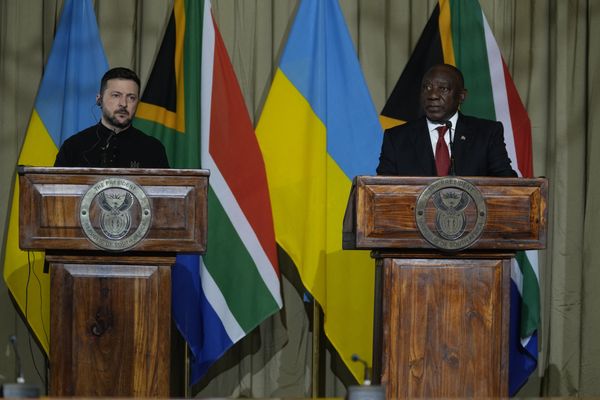
Nigeria and South Africa are set to face each other in the Africa Cup of Nations semifinals, making it only the second time in history that they meet at this stage of the tournament. For Bafana Bafana, their primary objective will be to overcome Nigeria's dominance and prove their worth. It is an opportunity for South Africa to put to rest the narrative surrounding their 1996 AFCON title win, which some believe was less legitimate due to Nigeria's absence.
The historical context between these two teams adds an intriguing layer to their upcoming encounter. Back in 1996, the Super Eagles, the reigning African champions and arguably the best team in Africa at the time, were withdrawn from the tournament by then-president Sani Abacha. The decision was in response to criticism from South African leader Nelson Mandela regarding the murder of Ken Saro-Wiwa and other Ogoni leaders from south Nigeria.
When Nigeria returned to the tournament in 2000 after a one-tournament ban, they faced Bafana Bafana in the semifinals and handed them a 2-0 defeat. Since then, the two teams have had several matches against each other. While South Africa managed to secure their first competitive win over Nigeria in 2017 with a stunning 2-0 victory in a Nations Cup qualifier, the Super Eagles have won four games, lost one, and drawn three in their eight encounters.
Former Nigeria international goalkeeper, Idah Peterside, dismisses the idea of a football rivalry between these two nations. He points to Nigeria's dominance over South Africa and emphasizes that the Super Eagles have only lost one competitive game against them since 1992. However, Bafana Bafana goalkeeper Rowen Williams believes that past statistics hold little significance in the upcoming match. He asserts that they have the power to control their performance and the result on the day.
Beyond the football pitch, Nigeria and South Africa share a complex relationship that goes beyond the sport. There is an underlying rivalry that extends to politics and even entertainment. With both nations vying for leadership positions in Africa, tensions can spill over into different spheres. This rivalry has been further fueled recently, with Nigerians expressing concern over potential xenophobic attacks if Bafana Bafana loses, following threats on social media. Precautionary measures have been taken to protect Nigerian citizens and their businesses in South Africa.
On the matter of the game itself, Nigeria's coach, Jose Peseiro, remains unfazed by the favorites tag. He is confident in his team's ability to win the tournament, but acknowledges that belief alone is not enough. Peseiro emphasizes the importance of replicating the team's solid performances and maintaining a united approach on the field.
One concern for Nigeria was the health of striker Victor Osimhen, who experienced stomach discomfort. However, he recovered in time to join the team for their final training session before the match. Despite Osimhen's capabilities, Bafana Bafana's coach, Hugo Broos, remains unfazed and plans to neutralize the Nigerian attack.
Regardless of the outcome, Nigeria will extend their record as the African team with the most appearances in the last four of the Africa Cup of Nations. Having reached the semifinals in 15 out of their 19 tournament appearances, the Super Eagles have an impressive track record. This time, their sights are set on clinching the gold, and South Africa is their first obstacle to overcome.
As these two football powerhouses clash in the semifinals, both teams will bring the weight of history and ambition onto the pitch. The showdown promises an intense battle as Nigeria seeks to maintain their dominance, while South Africa aims to make a statement and prove their worth. Only time will tell which team will advance to the final and inch closer to African glory.







